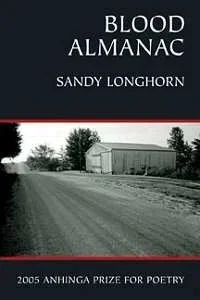Sandy Longhorn
Sandy Longhorn is the author of The Girlhood Book of Prairie Myths, winner of the 2013 Jacar Press Full Length Poetry Book Contest, and Blood Almanac, winner of the 2005 Anhinga Prize for Poetry. Her poems have appeared in Crazyhorse, Hayden's Ferry Review, Hotel Amerika, North American Review, and elsewhere. Longhorn teaches at Pulaski Technical College, where she directs the Big Rock Reading Series, and for the low-residency MFA Program at the University of Arkansas Monticello. In addition, she co-edits the online journal Heron Tree and blogs at Myself the only Kangaroo among the Beauty.


